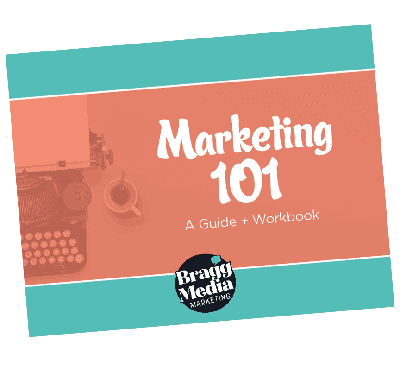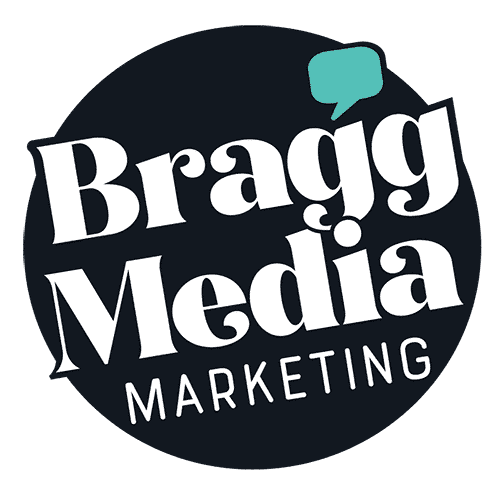
Why you do what you do is what sets your business apart from the competition and it lays the foundation for your business differentiation.
Business differentiation creates value
Business differentiation shows your audience why you are different from your competitors. What unique value does your product or service bring to the table that your competitors don’t offer?
Is your product more durable, more affordable, better made than your competitors’ products? Is your service more affordable, more in-depth, more long-lasting than your competitors?
Sometimes, standing out from the crowd is as simple as a list of features for your products or services. Other times, business differentiation can be found in clever service slogans and ad campaigns.
Big brands use their company taglines to differentiate their services or products all of the time:
- “The customer success platform” — Salesforce
- “When banks compete, you win” — LendingTree
- “Wander Wisely” — Travelocity
- “Stronger than dirt” — Ajax
- “The heartbeat of America” — Chevrolet
Without differentiation, your marketing has no real value.
Business differentiation establishes brand authority
Business differentiation goes far beyond the product or service itself. Business differentiation gets into the nitty-gritty of who you are as a company — also known as your brand.
Your brand is much more than your logo. Your brand is who you are — your values, your mission and your heart. Knowing who you are as a brand is crucial to engaging with your audience.
Why? If you don’t know who you are, it’s very difficult to attract and to engage the right audience. Brand identity is an important part of establishing an emotional connection that triggers the right response from your audience.
Brand identity aligned with business differentiation builds trust, credibility and authority with your audience. A business that is established within their brand knows who they are, what they offer and why. When you have the knowledge and understanding of the why factor, you can apply these unique values to your business and to every interaction with the consumer.
Business differentiation defines your purpose
The first step to defining your business differentiation is to find your why.
Why did you start your business in the first place? What inspired you to offer this specific service or that particular product?
Perhaps you desire to help people become financially independent? Perhaps you wish to be known as the most brilliant innovator of all time? Or perhaps your goal is to create a hub for your community to connect?
Whatever your aim, it’s important that your purpose is the driving force of your business. In fact, everything that you do should serve your core purpose.
Your why will drive your business through the toughest times: when you get a bad review, when you experience a financial stumbling block, when your employees morale is at an all time low or when you encounter naysayers. Your why is your reason to keep going and to maintain high quality service every time.
Big brands often tie in their mission and values (their why factor) into their taglines:
Business differentiation sets your marketing in motion
The basic function of marketing is to serve as a communication tool that shows your audience exactly who you are and what you stand for. When you tie in your ethos, you show your audience why you’re doing what you’re doing. This emotional connection lets your audience know that you are just as invested in them as they are to you.
The greatest form for marketing your “why” is through high quality, valuable information. Content marketing is the most effective way to engage your audience, because it shows your audience that you care more about them than you do your own profit.
Investing in billboards or digital ad campaigns is still effective. However, these outbound marketing methods make more of an impact when they are paired with organic content marketing that reinforces your message — such as a steady social media presence packed with content or a drip email campaign that keeps your audience coming back for more.
Content should create a sense of community for your target market audience. For instance, create blog articles specifically tailored to answer questions about your niche. These articles don’t have to be centered around your product or service. They can touch base on an issue related to your industry that directly affects your audience. Sometimes, the most effective calls to action are those that are placed with information that is not designed to sell (kind of like this blog post).
Business differentiation engages your audience
Part of clearly identifying your brand’s differentiation means knowing who your ideal customer is and isn’t.
When the U.S. Marines crafted their recruiting slogan, “The Few. The Proud. The Marines.” do you think they were targeting 40-something couch potatoes?
L’Oreal coined the phrase “Because you’re worth it” in 1973 to connect with the feminist movement at that time. “This is a celebration of self-esteem and confidence and what we think beauty is,” Cyril Chapuy, L’Oréal’s global brand president told The Globe and Mail in an article about the slogan.
How you connect and engage with your audience can become part of your business differentiation. It’s how people will remember your brand. It’s also how you keep the conversation about your brand going.
You don’t have to have the budget of a big brand to make an impact:
- Be consistent with social media posting, monitoring and interaction with fans and followers.
- Take polls and ask your customers engaging question to get a conversation rolling.
- Set up closed Facebook groups for a segmented audience and get them excited with fun content such as quizzes, videos and photos.
- Check out online forums to see what people are saying about your industry. What questions are they asking?
All of this information will help you gauge what content your audience likes, needs and wants.
If your business is stagnant or stuck, the best way to move forward is keeping business differentiation top of mind in your marketing.
Free Interactive Workbook

No one wants to spend time or money on marketing efforts that don’t work! This marketing workbook and guide will help you develop a strategy that brings results!
Get social with us!
Like what you’re reading?
Subscribe to Bragg Media’s
monthly newsletter.
